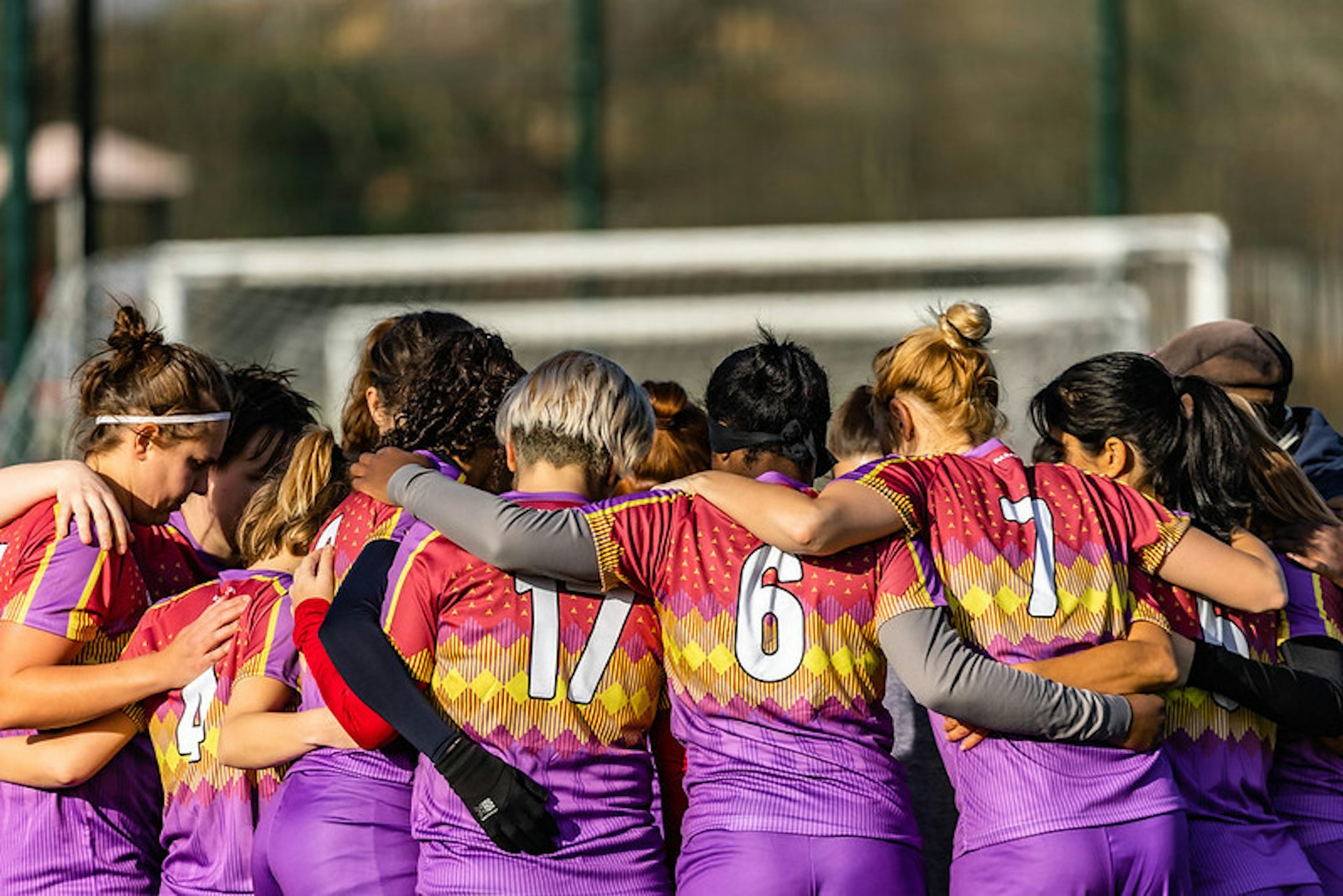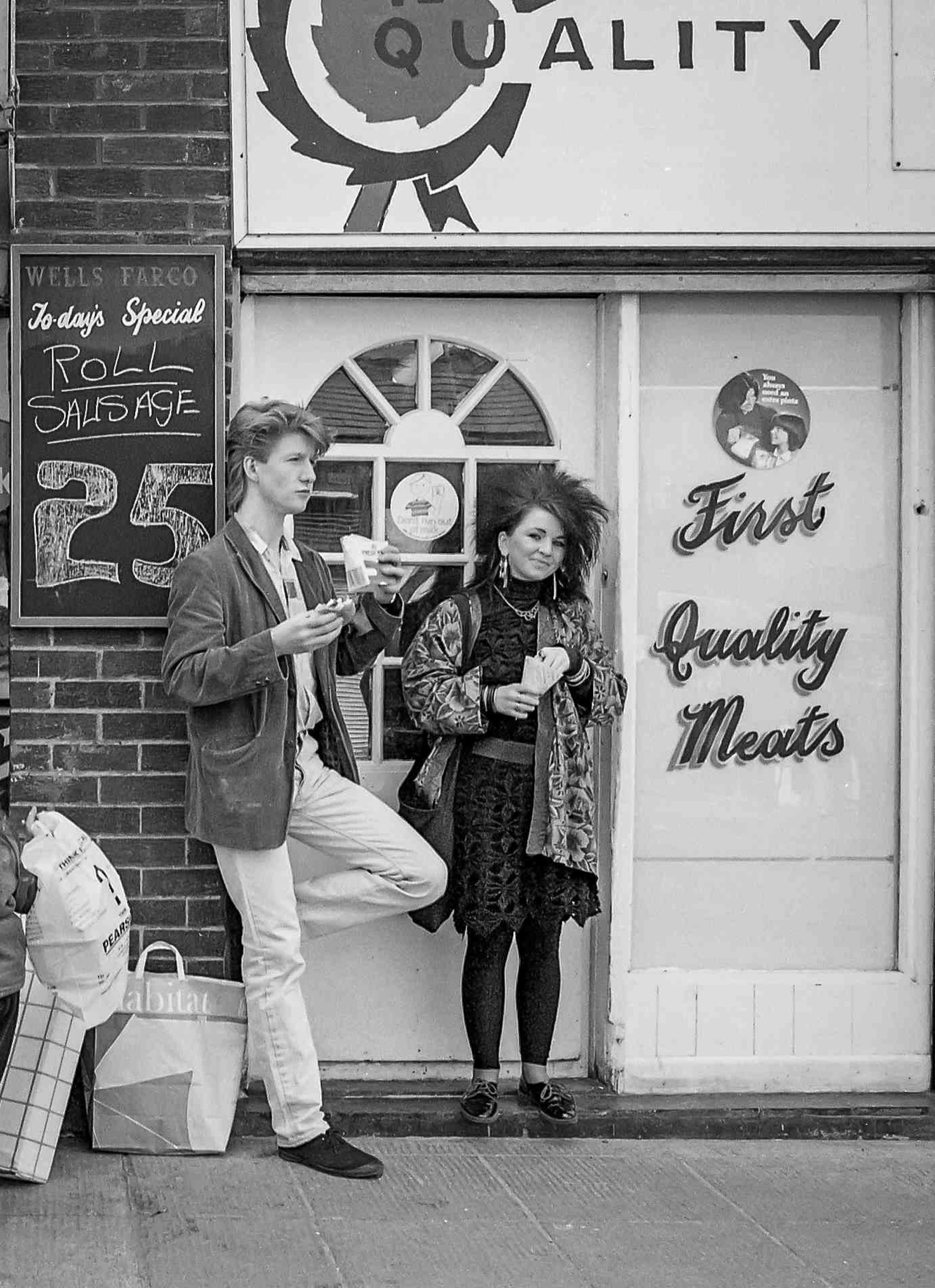
The cost of living crisis is killing football
- Text by Fred Garratt-Stanley
- Photography by Main image by Nick Davidson.
Chelsea’s recent £107m signing of Argentina’s World Cup winner Enzo Fernandez was the cherry on the cake for an insane month of Premier League spending. Closing just days before Manchester City was charged with over 100 alleged breaches of Financial Fair Play rules, this January shattered the British transfer window record with a collective outlay of £815m. But while England’s top-flight clubs continue stretching the gap between commercial greed and the daily realities of most football fans, clubs further down the ladder are experiencing a financial squeeze that’s testing their limits to the extreme. The gap between rich and poor in football, as in British society more broadly, has never been wider.
The tragic decline of proud community assets like Bury FC – expelled from the Football League in September 2019 following years of financial mismanagement and then placed into administration – underlines this reality. Recent spikes in the price of overheads and the ongoing financial impact of the pandemic, have only worsened the situation. Labour Party analysis estimated that a record 20,200 small businesses were lost between the first and second quarter of 2022 alone, and lower-league football clubs are certainly not immune from this threat. A recent Price to Play report found that 2,600 grassroots clubs folded during the 2021/22 season, a damaging blow given that these teams provide communities across the UK with valuable opportunities for physical exercise and social interaction. The truth is, however, that this phenomenon hasn’t appeared from nowhere – a point Andy Walsh, Head of the National Game at the Football Supporters’ Association (FSA), makes clear when I speak to him.
“It’s economic mismanagement of the whole country that’s put us in this position,” says Walsh. “They can blame it on pandemics, they can blame it on Ukraine, but it’s political, economic choices that have been made since 2008. Let’s not forget that these football clubs are providing a service locally that has a broader economic, physical, and mental wellbeing impact.” These services are proving increasingly costly to provide, as clubs are hit by hikes in utility bills, increased fuel costs for away travel, plus the fact that, as Glebe FC Chairman Rocky MacMillan tells me, “raw products, grass seed, sand, soil [is] 35 percent higher than last year” due to inflation. Rising costs are causing a genuine existential threat to small football clubs across the UK.

Clapton Community FC Development v The Gun. Credit: Garry Strutt.
Conversations about how to reduce the impact of soaring running costs have been wide-ranging. After being granted the freedom to do so, some clubs at Isthmian League level (which represents the English pyramid’s regionalised 7th and 8th tiers) and below have changed kick-off times from 3pm to earlier throughout winter, to reduce floodlight use (and thereby energy bills); however, there’s far more to consider than just floodlighting.
“There are a lot of clubs that are financially in ruin,” says MacMillan, who has presided over Glebe since founding the South East London club in 1995. Asked about the option of moving kick-off times forward, he explained the logistical difficulties that made his club reject this proposal: “More and more players are going into work 7-11, 7-12 on a Saturday, so if you put it at 2pm, some of them are gonna turn round and say ‘I can’t play because I need to make that £100, £120 on a Saturday morning’.”
So what measures have they introduced to combat financial troubles? “Raw pitch costs (soil, grass seed etc) have gone up 35 percent, so instead of doing our full pitch, we do what’s called a pitch confinement, where you do the areas of the pitch that 90 percent of the game is played on. We can save ourselves 30 percent on that. I’ve absorbed three price rises from my [drinks] supplier in the last nine months. You have to keep the social side going and make sure people are happy there.”
“I think we are a really well-run club, but there’s a lot of clubs a lot worse off than us,” he says. “We’ve had 14 years of austerity, now, and you listen to Rishi Sunak talk about difficult decisions, cutbacks… It’s a really difficult time.” The impact of austerity is a subject that’s important to another club with community at its heart: Clapton Community FC. Operating with a one-member, one-vote structure, those who run the club view themselves primarily as custodians. Their role extends far beyond football, as the club’s members are keen to point out.
“As a community benefit society, we have a duty to benefit not just our members and supporters but the wider community,” says Sukhdev Johal, a member who’s committed to “collectively building something that will endure over time and will belong to the community, not just to an individual.”
Fulfilling that role is costly. According to Johal “everything is more expensive, especially energy costs. The winter months mean paying for floodlights and we also anticipate venues to pass on rising costs to hirers. The crash in the pound affected the costs of producing our merch and Brexit had already meant importing our replica shirts was more complicated and costly.”
To manage overheads, community-owned clubs like Clapton CFC rely on membership fees and cash collected at the gate on matchdays. But even with reasonable prices for both (their lowest membership concession fee is just £5), members such as Kevin Blowe express concern about footfall at home matches: “People have less money in their pockets to spend on leisure time. We saw a taste of this during lockdown, with a lot of our members losing employment. The struggles of that period led to the club setting up a hardship fund where members could donate, and other members having a hard time could request help… a great example of community in action.”
Organisations such as the FSA are doing what they can to plug the gap vacated by the state. According to Walsh, “We support [clubs] with business planning tools, ideas and infrastructure for fundraising amongst other things. When things go wrong, we go to clubs and offer them support in trying to put things right, and sometimes that can be about restructuring the club into a different organisational entity [such as a community ownership model].”
Clearly, though, there are limits to what these bodies can do. Without meaningful government intervention, this winter’s bleak financial situation will be just the bumpy beginnings of a path that inevitably ends with the loss of even more of the valuable community assets that make up the UK’s rich footballing culture.
Clubs in need of support can contact the FSA at info@thefsa.org.uk.
Follow Fred on Twitter.
Enjoyed this article? Like Huck on Facebook or follow us on Twitter.
